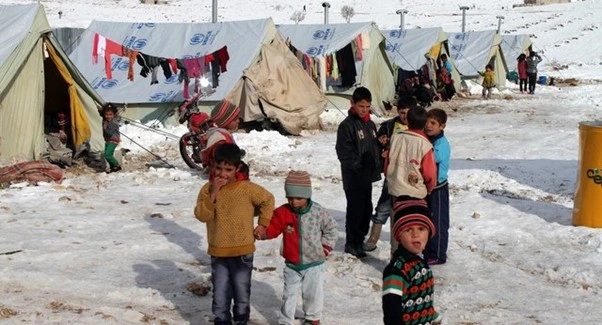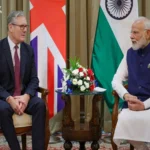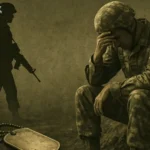Long billed as the largest democracy in the world and a putative pluralistic paradise, India has many times declared itself a secure and friendly refuge to the persecuted minorities, particularly those fleeing religious bigotry in adjacent states, notably Pakistan. This is a story that is repeated across numerous speeches made by the government and in nationalistic rhetoric and one that has been given more substance by the divisive Citizenship Amendment Act (CAA), which allegedly aims to save Hindus, Sikhs, Buddhists, Jains, Parsis, and Christians who face religious persecution in Muslim-majority nations, including Pakistan, Afghanistan, and Bangladesh.
But the harsh reality of the state of this group of migrants paints a much gloomier and more depressing picture. Instead of being brought to safety and dignity, tens of thousands of these individuals are placed in the conditions of complete neglect, systematic indifference, and, in certain instances, enthusiastic violence.
A gruesome example would be the case of Sanjay Kumar and his wife Sapna Kumari. The couple who had migrated to Sukkur in Sindh province of Pakistan in pursuit of security and better future were brutally murdered in Mumbai with knife wounds on their bodies. Their death was not an isolated case but the component of a larger trend of danger to such migrants. This tendency also covers the yet-unsolved deaths of 11 Pakistani Hindu migrants in Jodhpur on August 9, 2020, which is surrounded by mystery and is highly likely to have been a mass murder. These instances are staring examples that to the minorities who seek India as their shelter against terror back home, its assurances of a secure haven can soon become a deadly mirage.
In addition to the direct risk to life, the situation of these refugees is notable by constant difficulties and lack. With more than 80,000 migrants, Pakistani Hindu migrants are found in different parts of northern India especially in states such as Rajasthan, Delhi, and Madhya Pradesh. However, instead of seeking protection, they end up in large, informal settlements and refugee camps where conditions are hardly any improved as compared to the intimidating conditions they fled.
The basic infrastructure in these camps is very inadequate. The conditions under which the majority live are deplorable: sanitation is wanting or non-existent; clean drinking water is in short supply; electricity is undependable or non-existent; and basic health services do not exist. There are open drains, rubbish piles and the air are filled with the smell of rotting waste, and this is an ideal place where disease and hopelessness can breed. The camps are now areas of human dispossession, where the state promises of protection have turned into vain propaganda.
The children in these migrant families who would have been the next ray of hope as assimilated Indian citizens are being deprived of any education, even basic education, in a systematic manner. Since their families have no official records, a grim irony considering that the government has publicized these very people as the rightful beneficiaries of its refugee laws, schools unwillingly decline their application to be admitted to the schools. When they are denied the right to formal education, such children are doomed to spend their lives in illiteracy, menial jobs, and exploitation, which are passed on through generations of poverty and marginality.
All these sufferings are augmented by the abhorrently poor execution of Citizenship Amendment Act which was billed as a saviour to these same refugees. Whatever the clamour around the CAA, and the dramatic political rhetoric that went into its adoption, the truth of the matter is that the number of refugees that have managed to get Indian citizenship through the act is pathetically low. To give just one example, in 2014-15 only 4,300 Pakistanis and Afghan Hindus and Sikhs were given Indian citizenship, which is truly astounding when compared to the tens of thousands of refugees who are yet to have their legal status determined.
By 2015, some 36,000 Pakistani Hindus had long-term visas, which is a status that is considerably lower than that of a citizen with all the rights and security it involves and which puts them at the mercy of the arbitrary decisions of the bureaucracy. In most cases, this entails existing in bureaucratic limbo a life where they cannot go back home but at the same time cannot truly belong in India. The delays, ad infinitum, in dealing with their applications are not administrative glitches but systematic failures that point to a systemic neglect on how the system works. The queues to get citizenship approved are getting longer with every year, and the political usefulness of these refugees as rhetorical figures are gradually fading in the perception of the state.
The human price of such negligence has been tragic and the feeling of betrayal by the refugees is obvious. In a heart-wrenching turn of events, about 800 Pakistani Hindu families opted to scuttle their hopes of new life in India and went back to Pakistan in 2021, risking the very reasons that caused their evacuation. Families that were exposed to years of broken promises, years of delays, and years of living in inhuman conditions found that known hostility of Pakistan was better than the claustrophobic uncertainty and hopelessness that they were exposed to in India.
This phenomenal backwards migration, demolishes the Indian government story of kindness and asylum and reveals it as a callous farce. When a group of people voluntarily choose to go back to persecution as opposed to conditions in their so-called place of refuge then that is a clear-cut indictment on the failure by the host nation or country.
The same law which was supposed to give these minorities security and future has caught them in the web of perpetual exclusion, devoid of rights, protection and hope. The underlying fact in this developing tragedy that is rather unpleasant to acknowledge is that the situation of these refugees has been used as a political pawn. CAA and the discourse of persecuted minorities, in general, have been used in the domestic politics of the government much more than the interests of the migrants themselves. These hapless individuals have been playing pawns in the ideological war to settle the Hindu nationalist mood, to legitimize exclusionary policies targeting the Muslim population of India and to enhance the self-image of the ruling party as the champion of Hindus everywhere.
The plight of these minorities is highlighted during election seasons in speeches and rallies and is used like a moral weapon to whip the party base into a frenzy and as the government looking after the interests of global Hindus. However, once the polls close and the media spotlight moves on, the refugees are unceremoniously moved to the backburner to rot in their wretched camps, out of mind and out of sight of the very politicians who used their cause.
It is not just a humanitarian scandal but a betrayal of morals as this has become a systemic pattern of neglect and exploitation. India, the country that seeks to take a seat at the world leadership table as a principled democracy and a defender of human rights, has turns out to be the silent overseer of a humanitarian catastrophe on its own soil. The plight of these migrants has become a very bitter contrast to the national self-perception and the pretensions of the country in the global arena.
The disconnect between rhetoric and reality is as pronounced as this; where the government takes pride in the fact that they are committed to ensuring that vulnerable minorities are safe, the reality on the ground is far different; one that can be characterized by rampant squalor, disenfranchisement and hopelessness.
India has not proved to be the safe haven or the land of opportunity that the migrants had hoped or been promised. They have rather been languishing in the periphery of a sad limbo, neither being wanted as full citizens, nor being able to go back home without being scared. What is more, the consequences of such disregard are bigger than the destiny of the refugees themselves. It conveys a message to the world on how serious India is in its humanitarian obligations and how genuine are its democratic principles.
The country proves worthy of its credibility and moral authority when it fails to assist the rights and dignity of the people it has taken an oath to defend. That even vulnerable minorities, those who should supposedly be beneficiaries of the new citizenship policies of the government, are left to languish in ignorance goes to pose vexing questions about the prospects of pluralism, tolerance, and justice in India. When such people, whose question the government has recognized clearly, are handled with this kind of indifference, what will be the future of other individuals persecuted and marginalized?
The account of Pakistani Hindu migration in India is a worrying story of promises that were not kept, and hopes that were not fulfilled. It is a story of exploitation camouflaged as compassion, of political opportunism camouflaged as humanitarian concern. The cumulative deaths of Sanjay Kumar, Sapna Kumari and the 11 migrants in Jodhpur highlights the ultimate danger that individuals were exposed to who had trusted in the Indian dream of security. The deplorable state of the camps, the refusal to provide education to the children, the inability to provide citizenship in any significant amounts, and the devastating going back of hundreds of families to Pakistan- all these facts point to the existence of a harsh truth.
India, instead of acting as a real refuge, has turned into a long-term suffering place to these refugees as they are more looked upon in terms of their political symbolism rather than their human essence. So long as this vicious circle of neglect and exploitation continues, so long as India sees herself as a haven of the persecuted, this image will be an empty and tragic facade, a dream become dust to those who dared to believe in its reality.







